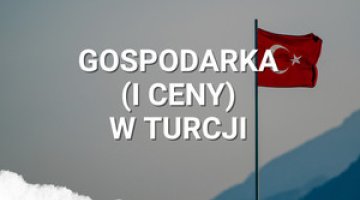Turkey: early elections ahead
Turkish President Recep Tayyip Erdoğan announced on 22 January that early presidential and parliamentary elections would be held on 14 May. A formal request to change the date is due to be submitted to the Supreme Election Council (YSK) on 10 March. Erdoğan’s statement thus puts to rest the speculation, fuelled by the Turkish media, over whether the elections would be held early – something that officials from the ruling Justice and Development Party (AKP) had been hinting at for about a month. The elections were originally scheduled for 18 June.
Under the new presidential system that has been in place in Turkey since 2018, it is within the competence of the head of state (as well as the parliament) to call early elections. The president’s announcement will take effect only after approval by the YSK (the council is subordinate to Erdoğan’s authority and is unlikely to block this request). According to the constitution, both the president, who dominates the political system, and members of parliament will be elected for five-year terms.
Commentary
- The elections in Turkey will take place against the backdrop of acute socio-political tensions (fatigue with the AKP’s and Erdoğan’s rule since 2002 is translating into rising support for the opposition), a currency crisis that has dragged on for several years, and a dynamic international situation – including the war in Ukraine, disputes with the West and the Kurdish problem. The elections coincide with the 100th anniversary of the founding of the Republic of Turkey, which is exacerbating strong identity-related tensions over the Kemalist legacy, including the role of secularism, the country’s civilizational orientation and a vision for its future.
- The conservative-Islamist AKP, which has been ruling the country in coalition with the Nationalist Movement Party (MHP), is now grappling with a mass exodus of votes. The ruling camp can currently hope for a level of support of around 40–45%, similar to the combined votes which polls give the opposition, while the MHP itself is hovering around the electoral threshold. Early elections would allow the ruling coalition to capitalise on the positive effects of a temporary economic upturn, including the inflow of foreign capital in recent months, a short-term drop in inflation, and the introduction of ambitious social programmes. The change of election date is also likely to increase voter turnout to the advantage of the ruling coalition, although the official argument in favour of early elections remains the desire to avoid coinciding with religious holidays and university examinations: Erdoğan himself announced the change of the election date at a meeting with students in Bursa.
- Bringing the elections forward will pose a challenge to the opposition and disorient its election campaign. The informal opposition bloc is made up of six parties and includes republican, ultranationalist, Islamist and neoliberal circles. The only political glue that binds them together is their desire to oust Erdoğan and restore the parliamentary system. Simultaneously, the opposition is embroiled in many internal conflicts, including leadership disputes due to the absence of a joint presidential candidate, tensions between the leaders of the largest parties, and the ambitions of the opposition mayors of major metropolitan areas who wrested power from the AKP in the 2019 elections. On top of this, the opposition is struggling with substantial policy differences between extreme nationalists and the pro-Kurdish left. Istanbul’s mayor Ekrem İmamoğlu, Ankara’s mayor Mansur Yavaş and the Republican People’s Party leader Kemal Kılıçdaroğlu are the top candidates for the presidential race and enjoy similar levels of support in opinion polls. Each of them can also hope for comparable voter support to that of President Erdoğan in the second round.
- With the announcement of the election date, Turkey has effectively kicked off what will be a hard-fought election campaign. The opposition will probably seek to capitalise on public frustrations, expose the government’s mistakes and mobilise its electorate. However, it will be an enormous challenge to try to both achieve and maintain cohesion and unified leadership within the bloc. As usual in Turkey, the experienced and centralised ruling camp, along with the entire state apparatus (courts, election commissions, police authorities, and the financial resources needed for campaigning), will have the initiative in the campaign. Furthermore, Erdoğan has the power to escalate or de-escalate tensions in international politics (for example, in the Turkish-Greek conflict, or in relations with Syria in the context of the Kurdish question and the influx of refugees) and use that issue to mobilise more voters, mostly from nationalist circles. On the other hand, administrative and legal attacks on the opposition should be expected (such as the prospect of a court-ordered exclusion of the mayor of Istanbul – see ‘Verdict against Istanbul’s mayor: the election campaign in Turkey starts‘), or the recurring issue of outlawing the largest Kurdish party, the Peoples’ Democratic Party.





